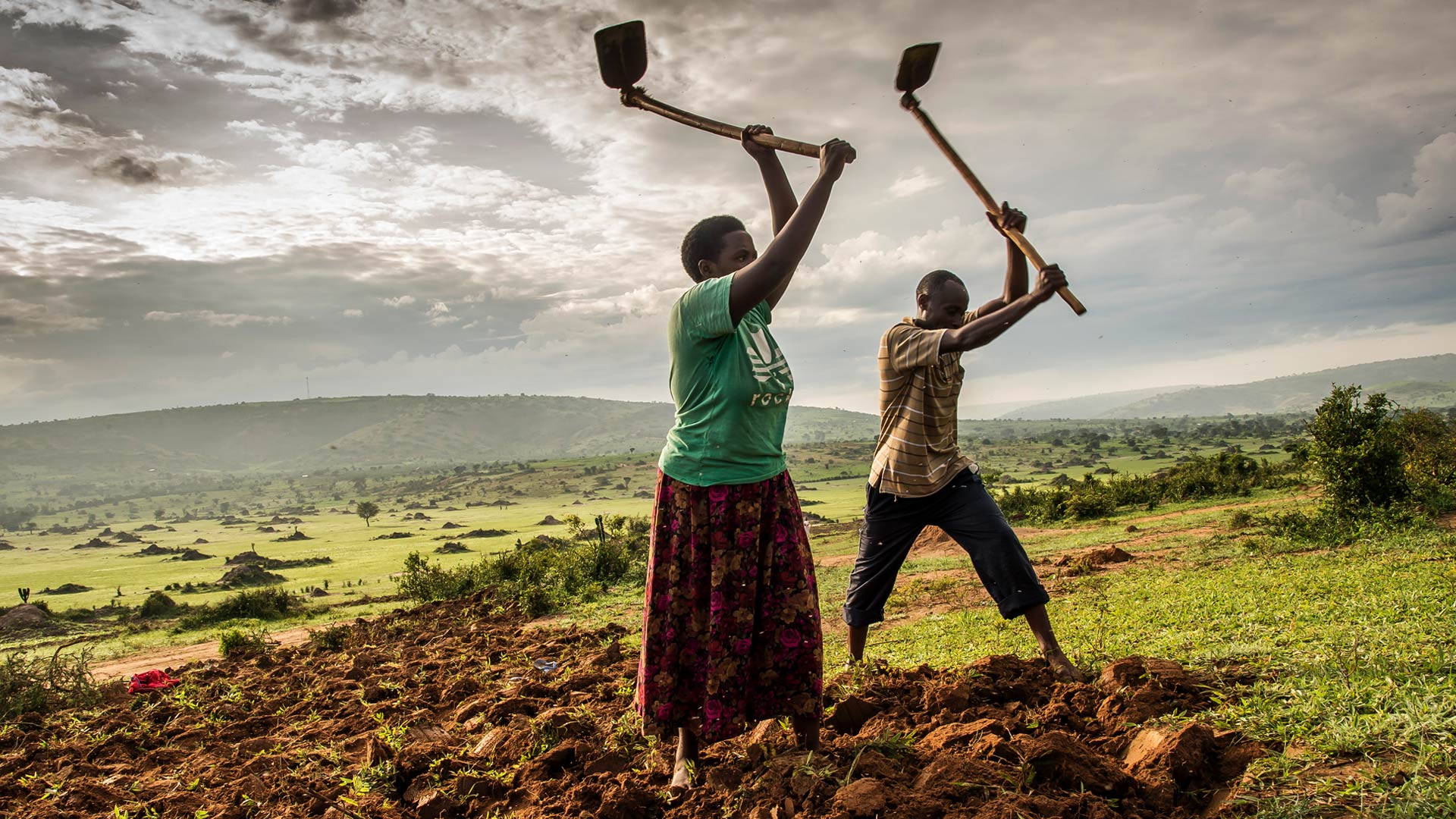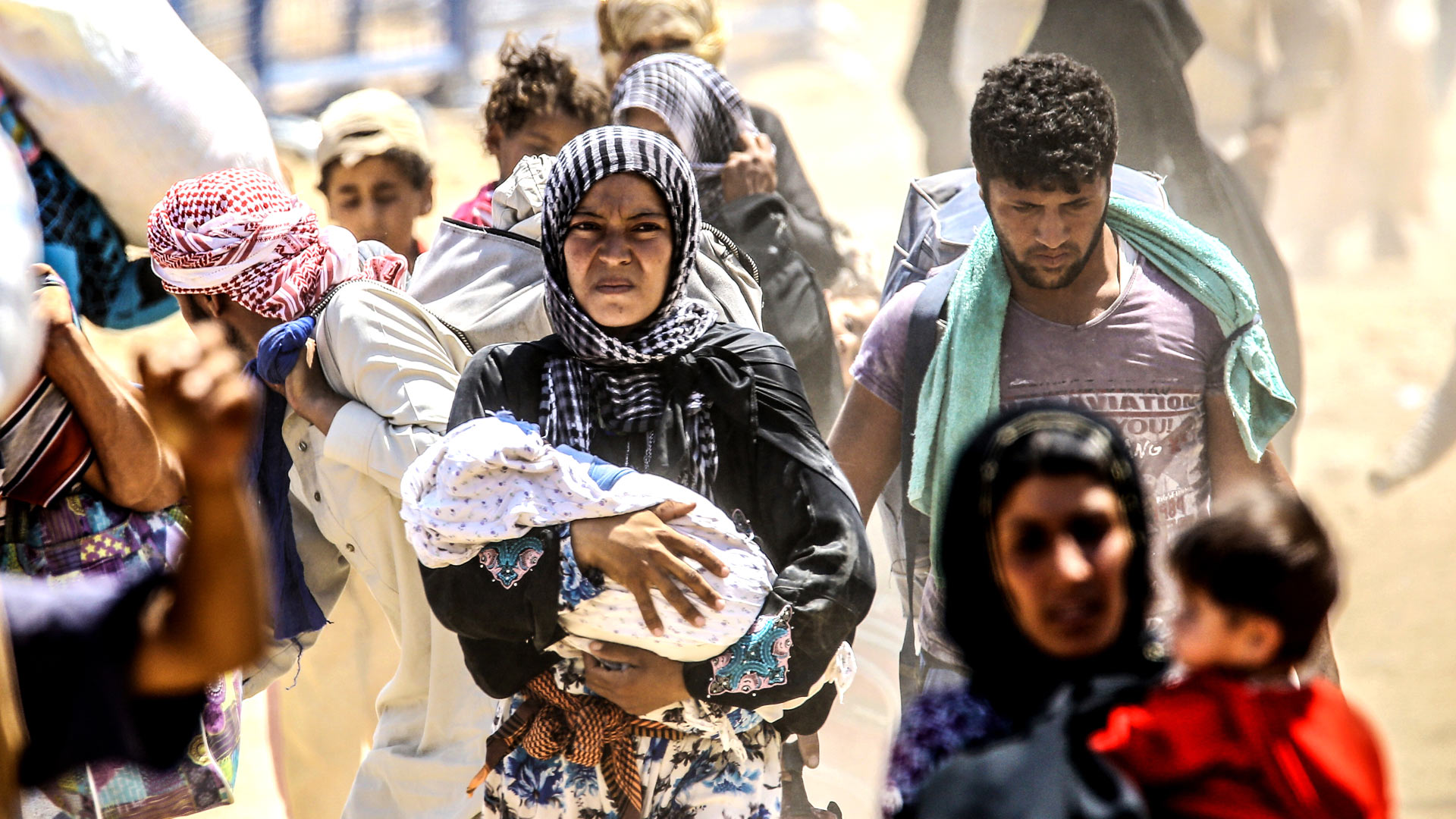UNHCR-funded welfare centres help the needy in Swat Valley
UNHCR-funded welfare centres help the needy in Swat Valley

SWAT DISTRICT, Pakistan, February 22 (UNHCR) - Laila Shahnaz is a psychologist and her services are in great demand in north-west Pakistan. That's because she works in the Swat Valley, where fighting last year forced more than a million civilians to flee to safer areas, leaving many traumatized.
She practices at one of 10 welfare centres, all dubbed Friend's House, set up since November in the Swat district of North West Frontier Province. Hers is in a village near the town of Mingora, while another five of these UNHCR-funded centres have been set up in the Lower Dir district of Malakand Division to help people displaced in other areas by the fighting.
Laila's patients come from among the 950,000 people who have since returned to their homes. Most of them are women or children; some are still suffering from trauma after being uprooted from towns and villages across the scenic region last year, others seek out Laila to ask about getting access to basic services.
"The inhabitants of Swat have suffered a lot; they have lost their loved ones, their valuables and faced economic problems," she told UNHCR, adding: "They are willing to approach anybody that they think can solve their problems."
Her counselling and psycho-social support is part of a UNHCR initiative to help the returnees recover from their ordeal. The refugee agency has set up the welfare centres in Swat and Lower Dir in partnership with the Regional Institute of Policy Research and Training and the Youth Resource Centre.
When UNHCR visited Laila at the Friend's House near Mingora, she had just been counselling a woman and her 12-year-old boy, Ali, who was a gregarious child until his brother and sister were killed when an artillery shell landed near their house during last year's offensive.
"Since then, the boy has started wetting his bed and he also suffers from nightmares. He cries a lot and refuses to leave the house. He does not want to go to school and thinks that militants will kill him," Laila revealed.
Meanwhile, the boy's father has severe mental problems linked to the death of his two children, while the mother suffers from depression and is often violent with Ali and her two other surviving children. With Laila's help over several sessions, the family members have been slowly recovering from the trauma.
Laila says that many children show similar signs of trauma. "Some children sleepwalk, cry, scream at night and shake uncontrollably when they see bearded men, soldiers or fast moving vehicles," she said. "Adults show signs of post-traumatic stress disorder and, for some, it has a long-term impact," the psychologist added.
Counselling and psychiatric support can help these people and that's why the UNHCR-run welfare centres, including Friend's House, are important for forcibly displaced people in the return phase. There has been notable success in helping children suffering from anxiety and fear.
Staff from the centres make a concerted effort to let people know that they are there and that they are ready to listen to people in confidence and help them address mental as well as practical issues. Social workers hold community meetings, visit public places and disseminate information about the services provided at the 10 centres in the Swat Valley.
The centres also work with NGOs, lawyers and district officials to see how they can best help people with specific legal and protection needs, such as regaining property. "The service delivery is without discrimination and is gender sensitive, with particular focus on community services for women and child-friendly spaces for the young," said Urooj Saifi, a senior protection officer with UNHCR.
Laila, meanwhile, says she gains immense satisfaction from seeing signs of recovery among those she counsels. "I know that counselling people who have seen death and destruction is not an easy job," she said. "I have been able to help remove the fears of children who were afraid to resume school. After coming to our centres, they are now back at school," she added.
By Rabia Ali in Swat District, Pakistan








